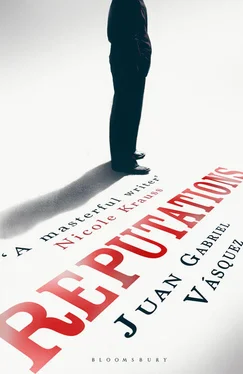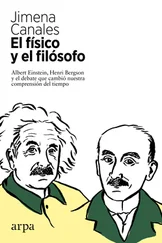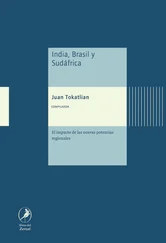A skinny, grief-stricken locksmith — his overalls had the smell of improperly dried clothes — went back with him to face the rebellious postbox, took a series of unnameable tools from his leather belt, and the metals gave off sparks under the neon lights, followed by the violation of the lock, or what Mallarino perceived as a violation, a violent and treacherous penetration of his private life, in spite of the fact that he’d given his authorization and consent, in spite of having been present during the whole process. He felt something like physical pain at the breaking of the lock, at the snap of the little door; he was saddened by the vulnerability of his collection of magazines looking at him imploringly from the shadowy depths: the latest Alternativa , the latest New Yorker , a back issue of Canard enchaîné a Parisian colleague had sent him. He wanted to leave and be home already, in his refuge, reading with a glass of beer, and hearing or sensing the reassuring presence of his wife and daughter. But he still had to witness the installation of the new lock and get the new keys and sign more papers and put tips in faceless hands before going back out onto Seventh Avenue carrying his leather bag slung across his chest, the back of his neck sweaty and his eyes tired from so much darkness. Later he would think it had all begun with that tiredness, or the disorientation that always overwhelmed him after contending with the senseless bureaucracy of this country, or simply the white colour of the envelope, that immaculate white, with no address or writing of any kind, no stamps, no blue-and-red stripes that revealed letters arriving from abroad. He’d begun to take the magazines out of his bag (impatient to begin leafing through them) and had his hand stuck inside, fingers moving as if through a card catalogue, head down, trying to see the covers, when he noticed the corner sticking out between the pages. He stopped in the middle of the square, looked at the front and back of the envelope, then opened it. ‘Javier Mallarino’, said the typed text of the letter, with neither date nor address. ‘With your warping of the truth you have assaulted and discredited the Armed Forces of our Republic, playing into the hands of the enemy, you are an UNPATRIOTIC LIAR and we hereby notify you that the patience of those who are LOYAL to our beloved country is wearing thin, we know where you live and where your daughter goes to school, we will not hesitate to punish with the harshest severity any further infringements against our honour.’ On the last line, over to the right with no ‘Regards’, no ‘Sincerely’, no ‘Yours faithfully’, a single word that seemed to be shouting from the page: PATRIOTS.
The first thing he did when he got home was to show Magdalena the letter, and he knew she was genuinely worried when she started making fun of the wording and grammar. Between the two of them they tried to remember the last cartoon he’d drawn on a military subject; they had to go back several weeks to a series of three drawings in which a disconsolate horse was talking to a woman who was handling some iron structures. Mallarino had drawn those scenes after Feliza Bursztyn, a Bogotá sculptor famous for working with scrap iron, had been accused of subversive activities, imprisoned in the Army’s stables, manhandled and humiliated and later forced into exile. Magdalena and Mallarino propped the originals up on the long living-room sofa and spent a good while looking at them, as if wishing they could vanish from the recent past. That night they were so frightened that they dragged a mattress into their bedroom so Beatriz, who had just turned six, could go to bed there and the family slept like that, heaped up in the insufficient space, breathing stale air all night and with their pressed-wood door securely locked. Days of paranoia would follow, looking over his shoulder on the city’s streets, returning home before dark, but later, when the memory of the threat began to fade away, what they’d remember would be the reaction of Rodrigo Valencia, who burst out laughing down the other end of the phone line when Magdalena called him at the newspaper, the day after Mallarino had received the note, to tell him what had happened. Mallarino watched Magdalena furrow her brow with the telephone stuck to her ear, and then heard her faithfully relay the message:
‘Rodrigo says congratulations, you’ve finally made it. He says you’re nobody in this country until somebody wants to hurt you.’
* * *
On the left-hand side of the stage, hidden in the wing between backdrops, Mallarino was waiting. The organizers of the tribute had asked him not to move from the spot until he was announced, and he, obediently, amused himself looking at the velvet curtains and the grain of the wooden floorboards, but also watching the hustle and bustle of people walking without tripping over the beams, the mysterious cables, the abandoned props like the remains of old battles. The Teatro Colón was immersed in semi-darkness. The audience, that audience who’d come to see him, had their eyes fixed on the back of the stage, on the images projected on a white screen, while the voice of a professional announcer recounted the highlights of his career over rather cheesy background music. Mallarino tried to peek out without being seen. The impossible angle didn’t prevent him from recognizing himself painting in his parents’ courtyard, or speaking to President Betancur, or opening the door to some cameramen who were making a documentary in his house up in the mountains, or posing beside an old drawing on the day of his first retrospective exhibition, at the beginning of the 1990s. It was a caricature of Mikhail Gorbachev; Mallarino remembered it as if he’d drawn it yesterday; the classic bald head, and on it, instead of the by-then famous birthmark, maps of Nicaragua and Iran. Behind Gorbachev, you could see a worried and pensive Ronald Reagan asking: ‘Mikhail, are you saying I ran contraband?’ ‘No, Ronald,’ Gorbachev answers. ‘I’m saying you’re with the Iran-Contra band.’ The whole drawing had taken him just over an hour, but the easy joke had always left him dissatisfied, and now Mallarino relived that dissatisfaction and wrote new draft attempts in his head, different combinations of the same words, less obvious puns. He was busy with that when he heard himself announced, and he had to go onstage, suffer the assault of the lights, feel the explosion of applause like a gust of wind and hear its uproar like a deluge.
Mallarino raised a hand by way of greeting; his mouth moved imperceptibly. He saw his vacant seat as if it were in fog; he saw faces greeting him, attentive hands outstretched to shake his and then go back to applauding, quick like those of a bootblack brushing shoes. Out of habit — but where did it come from, when had it started — he took two pens and his note-taking pencil out of his pocket and placed them on the table in front of him, three perfectly parallel lines. The theatre was full: in a flash he remembered previous visits, and in his head a Les Luthiers concert got mixed up with a zarzuela that he’d enjoyed a lot even though Luisa Fernanda, no less, had hit a false note in the first song. He looked for the box he’d sat in then, fourth to the right of the presidential, and found it occupied by a group of six young people applauding on their feet. Only when the rest of the audience gradually began to sit down, making delicate little waves on the sea of the orchestra section, did he realize that the entire audience had been standing up until a moment before: they’d welcomed him to the stage with a standing ovation. In the front row was Rodrigo Valencia, hands clasped over his belly, elbows invading the seats next to him: Valencia always gave the impression that chairs were too small for him. A voice came through the speakers. Mallarino had to look around for its source, first at the table, then at the cheap wooden lectern bearing the Colombian coat of arms. Behind the lectern, the Minister — Mallarino had seen her on the news and had read her declarations: her intentions were as laudable as her ignorance was vast — began to speak.
Читать дальше












